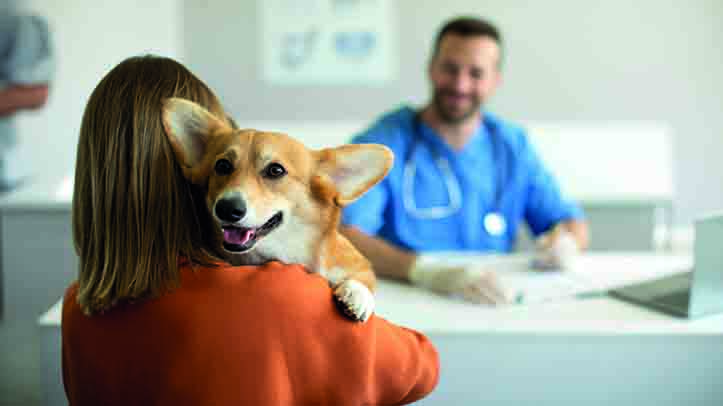The Competitions & Markets Authority (CMA) has confirmed its decision to launch a market investigation into the veterinary sector and published tips to help pet owners struggling with vet costs now.
This follows an initial review last September which prompted 56,000 responses to a call from pet owners and those working in the vet industry. The Competition and Markets Authority (CMA) then consulted on its provisional decision to launch a market investigation.
An inquiry group made up of independent experts and chaired by Martin Coleman will now oversee the investigation. Supported and advised by CMA staff, the group will be able to use the full breadth of the CMA’s formal market investigation powers to gather additional evidence, examine concerns in more depth and shape any remedies that may be needed to address these concerns.
Based on the evidence so far, the CMA’s key concerns remain the same as outlined in March. The CMA said it expects to use the market investigation to further explore whether:
- consumers are getting the information they need, at the right time, to make informed decisions;
- a limited choice of vet businesses in some local areas is impacting pet owners;
- profits earned are consistent with the levels expected in a competitive market;
- vet businesses have the incentive and ability to limit consumer choice when providing treatments or recommending related services, particularly when they are part of large integrated groups; and
- the regulatory framework is preventing the market from functioning as well as it could.
Examples of potential remedies include mandating the provision of certain information to consumers, imposing maximum prescription fees and ordering the sale or disposal of a business or assets – all of which are legally enforceable. The CMA can also make recommendations to government – for example, suggesting changes to the regulatory framework.
Sarah Cardell, chief executive of the CMA, said: “The message from our vets work so far has been loud and clear – many pet owners and professionals have concerns that need further investigation.
“We’ve heard from people who are struggling to pay vet bills, potentially overpaying for medicines and don’t always know the best treatment options available to them. We also remain concerned about the potential impact of sector consolidation and the incentives for large, integrated vet groups to act in ways which reduce consumer choice.”
Ms Cardell continued: “In March we proposed that a formal market investigation was the best route to fully explore these concerns and, if appropriate, take direct action to address them. That proposal has been overwhelmingly endorsed through our consultation.
“While we’re aware of acute staff shortages and difficult working conditions for vets, we consider a formal market investigation is essential to ensure good outcomes for the millions of pet owners in the UK as well as professionals working in the sector. The independent inquiry group will now take this investigation forward and, in the meantime, we’re publishing some tips to help pet owners better navigate vet services.”
CMA’s top three tips for pet owners
Look further than the closest vet
Many pet owners told us they choose a vet based simply on how close it is to where they live. It might feel convenient, but fees and services do differ between practices so check to be sure it’s the right one for you.
Ask if there are other treatment options
Getting a treatment that works for you and your pet is what matters most. It’s important that you understand why your vet has recommended a particular treatment or test. But if you’re not sure about a treatment, or you’re worried about the cost, speak to your vet.
If it’s not urgent, consider buying the medication elsewhere
When it’s an emergency, we just want to get our pet the medication they need as quickly as possible. But if your pet needs non-urgent care, then it can be cheaper, even when you include your vet’s prescription fee, to buy the medication elsewhere – such as an online pharmacy or specialist pet shop. Around a quarter of pet owners who responded to our call for information were not aware of this.
Next steps
The inquiry group will lead the investigation. The first few months will focus on gathering additional evidence from a wide range of stakeholders and conducting analysis.
Martin Coleman, Inquiry Group chair said: “The vet services market is worth an estimated £5 billion a year and provides a necessary service to pet owners so it’s right that we fully investigate competition concerns – this matters to businesses, veterinary professionals and, crucially, the 16 million households in the UK who have pets.
“Market investigations are, by their nature, comprehensive and complex. They require time to fully explore concerns and to ensure that all points of view are heard so we can reach the right outcomes and take appropriate action, if needed, to make the market work for everyone.”


